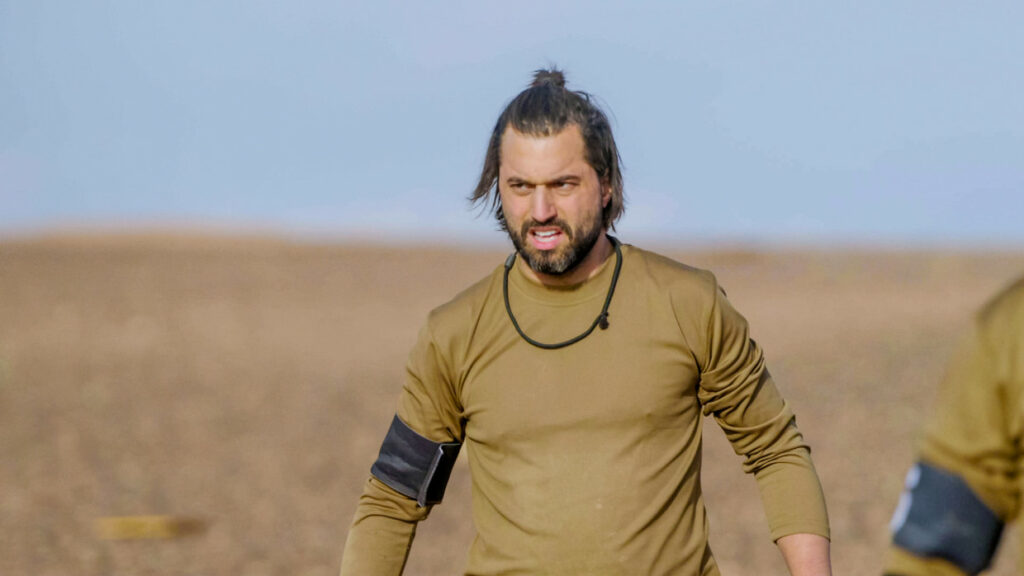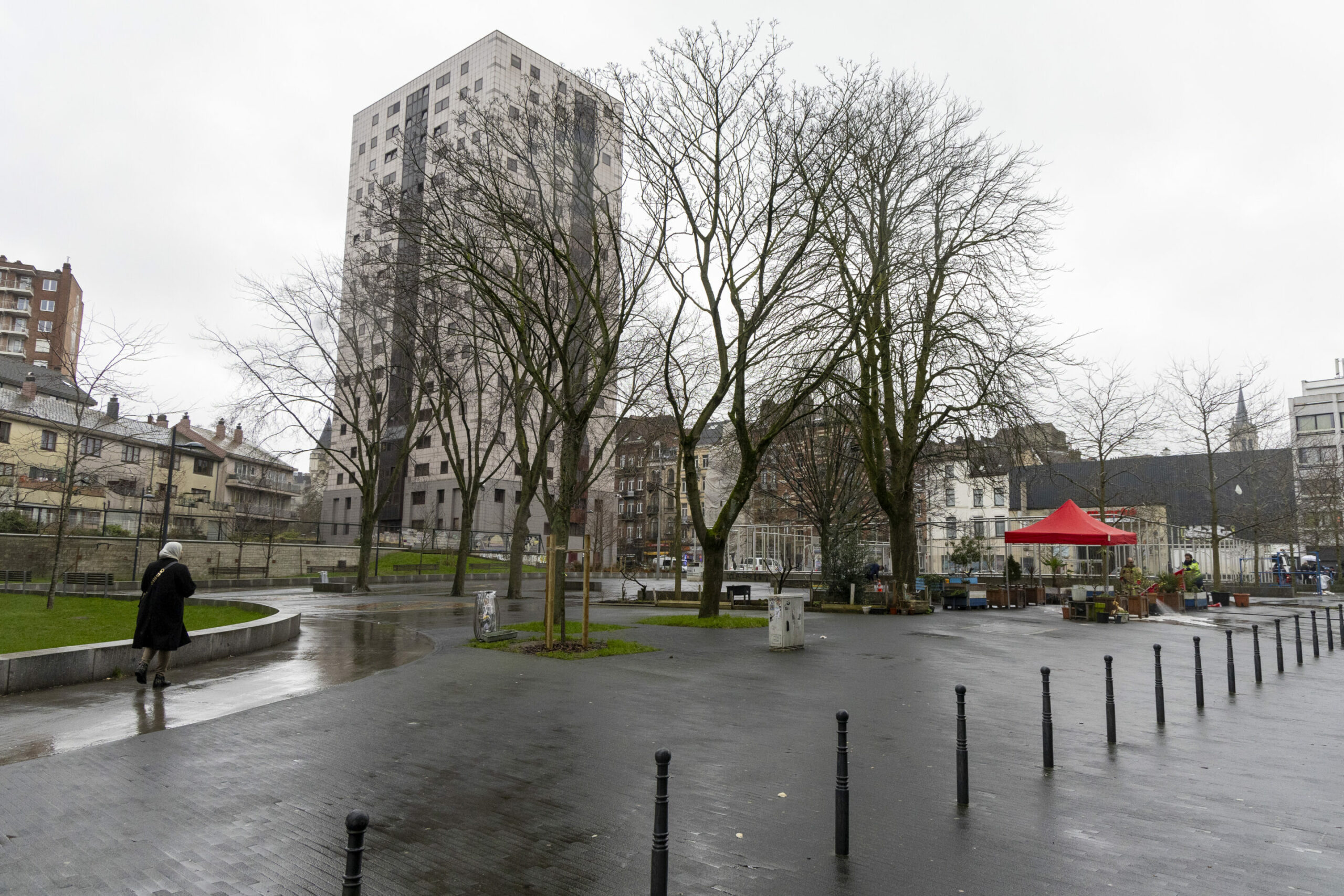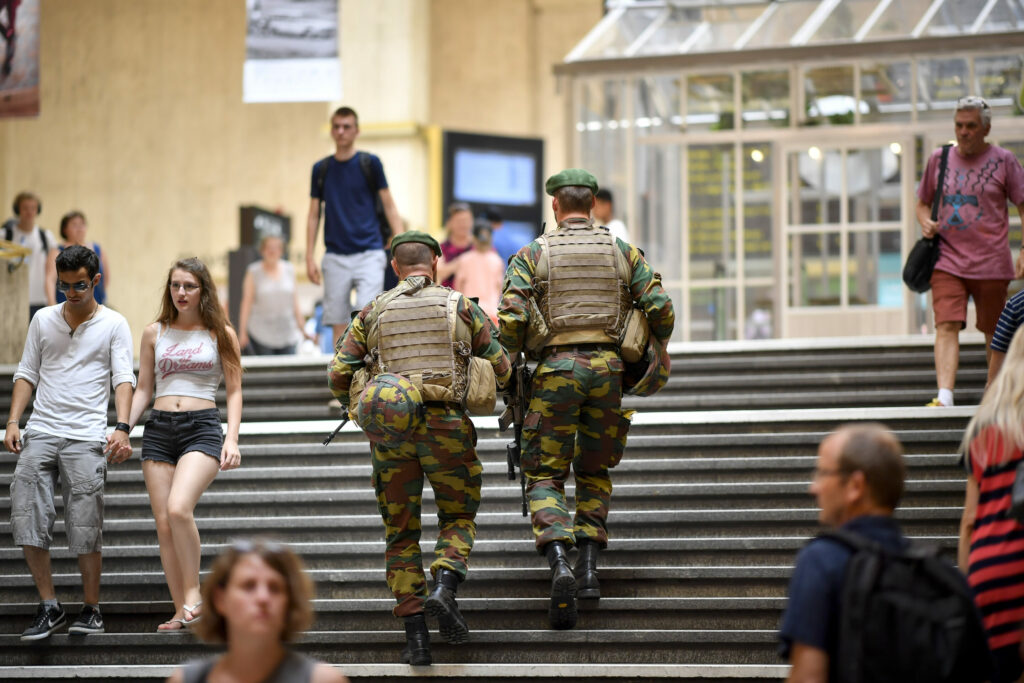In light of the drug-related violence that has afflicted Brussels streets this year, Georges-Louis Bouchez (leader of the Francophone liberal party MR) called for the military to be deployed. But his proposal met with virulent criticism and on Wednesday was dismissed by the National Security Council.
Instead, an "integrated approach" will coordinate between police forces and the judiciary to focus on "hotspots" such as Porte de Hal and Peterbos and harmonise efforts by the city's six police zones. Concurrently, deportations of foreign nationals involved in the drug trade will be accelerated.
Bouchez and fellow party members Deputy Prime Minister David Clarinval and MR Vice President David Leisterh took to the media airwaves on Tuesday to call for troops to be deployed on the streets of Brussels. "Faced with this emergency, we are calling for the army to return to the streets," Bouchez said on La Première radio.
His comments drew particular criticism from the social aid sector, with Charlotte Bonbled, head of communications for non-profit Dune, calling the proposal a "dishonest and inappropriate" response to a social crisis.
"It is the pinnacle of political dishonesty. It is a way of telling the people of Brussels that symbolic violence is the solution to a social crisis," Bonbled told The Brussels Times.

Georges-Louis Bouchez has in the past sought to portray a hard-man persona. Credit: DPG Media
'False solution'
Bonbled says such a severe security measure would be "completely off the mark" and points out that drug trafficking and consumption occur at multiple levels of society. Targeting the most vulnerable people in the supply chain will not address the root of the issue. She highlights the broader socio-economic factors which make addiction most pronounced in Brussels' disadvantaged neighbourhoods.
"The response has to be medical and social," she explains. "It has to provide support to the individual. It is about getting people out of the context that encourages problematic drug use."
In any case, political opponents of MR say that the army lacks the legal and material means to mobilise in such a way. "The fight against serious and organised crime is the job of the federal judicial police," Defense Minister Ludovine Dedonder (PS) told La Libre. "The army has neither the training, nor the equipment, nor the legal mandate to take on these tasks."
"Security in Brussels is a major concern but deploying the army to fight criminal gangs is ineffective," Écolo party leader Gilles Vanden Burre wrote on social media. "Security deserves better than such publicity stunts."
Feeding public fear
Public concern about street violence has risen in the wake of a spate of shootings across the capital, with two occurring within hours of each other this weekend. An Ipsos poll on Monday revealed that 66% of Brussels residents feel more unsafe, 69% want more police on the streets, and 78% think drug users should be punished more severely.
The non-profit sector that works with people in precarious situations is decidedly deflated about these results: "It's like asking people what they think of Islam directly after a terror attack," one sector worker told The Brussels Times off the record.
It isn't the first time that politicians have suggested military presence as a "solution" to drug crime. Last year a similar mobilisation was endorsed by some elected officials to address the surge in trafficking and related violence in Antwerp. The idea was notably backed by Antwerp Mayor Bart De Wever (N-VA) but was dismissed by the Justice Minister, who cautioned against replacing the police with the army.

Police pictured on the scene were a person was shot and killed at the square Jacques Franck on 14 February 2024. Credit: Belga / Nicolas Maeterlinck
Bonbled believes the survey results are a reflection of political manipulation of a social crisis. "We are working in very difficult conditions and now we have to fight two battles. One in our work with marginalised groups, and another to combat public opinion and make people understand the importance of what we do."
Reflecting on the action plan announced by the National Security Council, Dune warns against stigmatising areas by marking them as "hotspots".

